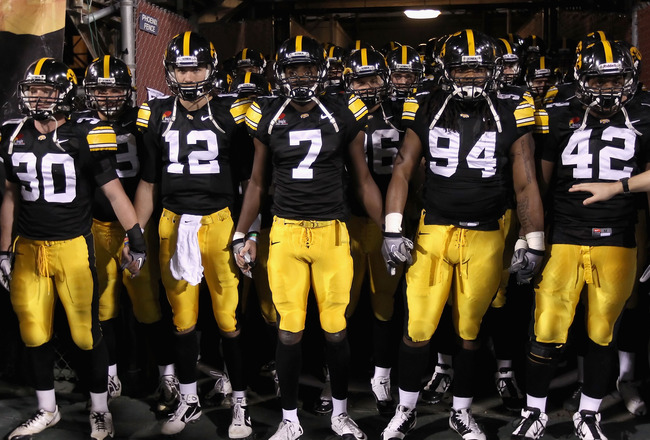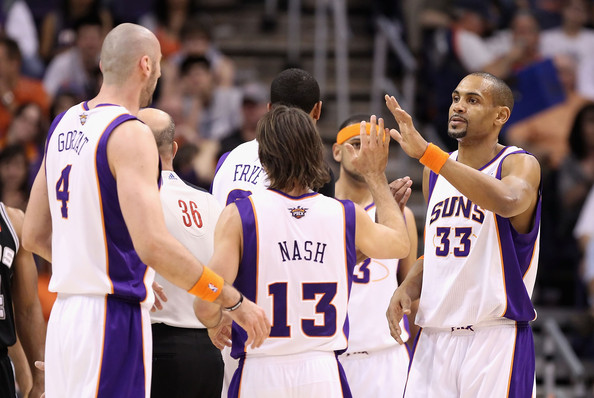
A Wall Street Journal editorial written in 2009 by Steven H. Webb Professor of Religion and Philosophy at Wabash College proclaimed “Soccer is Ruining America.” Webb’s claim? That “American energy, drive, and competitiveness are being undermined to the point of no return” by the global sport that “is a foreign invasion.” Amongst the arguments against the deprivation of soccer in America, was one that I find curious enough to comment on as it was listed as the first point of argument in his article and also included references to God and the Christian faith. I have included the paragraph for context below:

Excerpt from "Soccer is Ruining America" WSJ, March 12, 2009
Now, admittedly there is a degree of sarcasm and perhaps some dry, academic humor from which the author is speaking. The relevancy of this article and its recent resurgence in the public square – it was originally published three years ago, but has comments (albeit few) that are as recent as minutes ago – might be debated since soccer in the United States has grown exponentially since then; however, I want to address some theological deficiency within Mr. Webb’s opening point (or cheap shot as some have suggested). Essentially, Webb’s deprecation of the feet is not quite the biblical response as Webb might want one to expect or believe.
First, the apostle Paul wisely points out the importance of unity in the body and names the feet specifically in his example. From I Corinthians 12:21-26 (NIV, 1984) –
21 The eye cannot say to the hand, “I don’t need you!” And the head cannot say to the feet, “I don’t need you!”22 On the contrary, those parts of the body that seem to be weaker are indispensable, 23 and the parts that we think are less honorable we treat with special honor. And the parts that are unpresentable are treated with special modesty, 24 while our presentable parts need no special treatment. But God has combined the members of the body and has given greater honor to the parts that lacked it, 25 so that there should be no division in the body, but that its parts should have equal concern for each other. 26 If one part suffers, every part suffers with it; if one part is honored, every part rejoices with it.
Eugene Peterson’s paraphrase version, The Message frames it this way –
Can you imagine Eye telling Hand, “Get lost; I don’t need you”? Or, Head telling Foot, “You’re fired; your job has been phased out”? As a matter of fact, in practice it works the other way—the “lower” the part, the more basic, and therefore necessary. You can live without an eye, for instance, but not without a stomach. When it’s a part of your own body you are concerned with, it makes no difference whether the part is visible or clothed, higher or lower. You give it dignity and honor just as it is, without comparisons. If anything, you have more concern for the lower parts than the higher. If you had to choose, wouldn’t you prefer good digestion to full-bodied hair? 25-26The way God designed our bodies is a model for understanding our lives together as a church: every part dependent on every other part, the parts we mention and the parts we don’t, the parts we see and the parts we don’t. If one part hurts, every other part is involved in the hurt, and in the healing. If one part flourishes, every other part enters into the exuberance.
There is value, honor for the feet as opposed to Webb’s supposition that the feet are some what “lesser” of a body part. In fact, Webb’s oversimplification of hands vs. feet might lend plausibility to the argument that soccer (or football as it is also known by) is a more demanding sport because of the difficulty and limitation that players use (primarily) their feet. Soccer aficionados also are quick to point out that American Football (or the NFL) rarely uses the feet and might better be called ‘handball.’ But, I digress.
A second point to add, Webb has failed to mention the blessedness or beauty of the feet, especially as it is found in the Bible. The Hebrew prophet Isaiah writes:
7 How beautiful on the mountains
are the feet of those who bring good news,
who proclaim peace,
who bring good tidings,
who proclaim salvation,
who say to Zion,
“Your God reigns!”
The feet of the herald are declared beautiful (נָאָה). Isaiah isn’t the only one declaring the beauty of the feet – Nahum gives an anticipatory word of hope for the feet of the messenger (Nahum 1:15); Paul echos the words of Isaiah in Romans 10:15 using the Greek word ὡραῖος (hōraios) which speaks of a beauty that may only lasts in this world, but has an inherent timeliness in its beauty.
Finally, we see that the feet are the direct contact point for one’s stability – Christian believers are urged to ‘stand firm’ (Ephesians 6) and Paul’s words suggest battle. The implications being that the feet represent the staying and foundational power against an onslaught of foes. What does this have to do with soccer? Well, perhaps few games other than soccer have the ability to remind us that we cannot live life on our own – we need community and others around us who are supporting us, working alongside of us. Too, the fluidity of the game of soccer is much more like life – there are movements forward and backward, positive and negative, but the game continues to go (like life) there are few pauses or breaks – time continues to tick down to the inevitable end.
For those rankled by Webb’s comments – on God or soccer – don’t suffer him too much grief or attention – for he exists within a shrinking minority who do not realize that the Beautiful Game is played, watched, and adored by those of whom it might be said “beautiful are the feet.”
Blessings,

Rev. Brad Kenney


 Consider this: a National Football League team has 53 players. There are 11 on the field at a time – and usually there is little duality of roles (i.e. offensive players and defensive players do not mix). The resulting 22 “starters” leave another 31 on the sidelines, but there tend to be many ways for players to have specific roles (special teams, etc.) with an NFL team and are still able to play and contribute. There is no limit to the number of substitutions that can be made during an NFL game- only to the amount of players (46) that can dress on game day. So potentially, there are seven players that may not see action on game day. Statistically speaking, 13% of your roster that you have to try and keep satisfied, motivated.
Consider this: a National Football League team has 53 players. There are 11 on the field at a time – and usually there is little duality of roles (i.e. offensive players and defensive players do not mix). The resulting 22 “starters” leave another 31 on the sidelines, but there tend to be many ways for players to have specific roles (special teams, etc.) with an NFL team and are still able to play and contribute. There is no limit to the number of substitutions that can be made during an NFL game- only to the amount of players (46) that can dress on game day. So potentially, there are seven players that may not see action on game day. Statistically speaking, 13% of your roster that you have to try and keep satisfied, motivated. A National Basketball Association team can have 15 players signed and practicing with a team, but can only dress 12 for an NBA game. There are five players on the hardwood for a team at a time, unlimited substitutions and flexibility of roles within a team make for the chances of each player being able to get some time playing the professional game that they are passionate about. The three players that do not dress, equals 20% of a ‘roster’ though the NBA is similar to the NFL in that they often designate these players as “practice squad” players.
A National Basketball Association team can have 15 players signed and practicing with a team, but can only dress 12 for an NBA game. There are five players on the hardwood for a team at a time, unlimited substitutions and flexibility of roles within a team make for the chances of each player being able to get some time playing the professional game that they are passionate about. The three players that do not dress, equals 20% of a ‘roster’ though the NBA is similar to the NFL in that they often designate these players as “practice squad” players. The National Hockey League is similar to the NBA, but with more players on the roster. 23 players can be with the club, but 20 (18 skaters and 2 goaltenders) are dressed for gameday. The speed and pace of the game means that there are many substitutions (again, unlimited) and the 6 players (5 skaters and 1 goaltender) on the ice at a time allow for full participation of players in the game (coaching decisions, penalties, and situational circumstances aside). The three players excluded from game day represents 13% of the roster – again, keeping these players fit, motivated, and satisfied represent a challenge for the coaching staff.
The National Hockey League is similar to the NBA, but with more players on the roster. 23 players can be with the club, but 20 (18 skaters and 2 goaltenders) are dressed for gameday. The speed and pace of the game means that there are many substitutions (again, unlimited) and the 6 players (5 skaters and 1 goaltender) on the ice at a time allow for full participation of players in the game (coaching decisions, penalties, and situational circumstances aside). The three players excluded from game day represents 13% of the roster – again, keeping these players fit, motivated, and satisfied represent a challenge for the coaching staff. Major League Baseball has a different system. There are 25 players on an active roster (an additional 15 players are on an expanded roster which has injured players or farm team players). With 9 players on the field at a time (the American league has an additional player hitting for the pitcher) there are unlimited amount of substitutions that can be made, but there is a limit to this as many of the roles in baseball are situational. Teams carry different loads of positional player to pitcher ratios (usually 12 pitchers and 13 positional players on an active roster) but if we merely look at the game-day roster of 23 and assume that there are 13 position players that could be substituted for 8 positions (excluding the pitcher) this leaves 5 that may not see game time (not including situational pitchers). But the sheer number of games in MLB (162) means there is plenty of opportunity for players to play. So, roughly, 22% of a MLB team waits in the wings.
Major League Baseball has a different system. There are 25 players on an active roster (an additional 15 players are on an expanded roster which has injured players or farm team players). With 9 players on the field at a time (the American league has an additional player hitting for the pitcher) there are unlimited amount of substitutions that can be made, but there is a limit to this as many of the roles in baseball are situational. Teams carry different loads of positional player to pitcher ratios (usually 12 pitchers and 13 positional players on an active roster) but if we merely look at the game-day roster of 23 and assume that there are 13 position players that could be substituted for 8 positions (excluding the pitcher) this leaves 5 that may not see game time (not including situational pitchers). But the sheer number of games in MLB (162) means there is plenty of opportunity for players to play. So, roughly, 22% of a MLB team waits in the wings. Major League Soccer teams carry rosters of 30 (with some exceptions). Of this number, 18 dress for 11 positions on the pitch (field). However, competition rules limit the number of substitutions to 3 players. This means that in any given game (34 league games in a season) at most 14 players can compete. Games are timed (like in football, basketball, hockey) but there is no stoppage of the clock. 90 minutes for 14 players out of 30 means that more than half of your team is not seeing a minute of playing time (limited as it is) and among professional sports leagues, only the NFL has fewer games than MLS.
Major League Soccer teams carry rosters of 30 (with some exceptions). Of this number, 18 dress for 11 positions on the pitch (field). However, competition rules limit the number of substitutions to 3 players. This means that in any given game (34 league games in a season) at most 14 players can compete. Games are timed (like in football, basketball, hockey) but there is no stoppage of the clock. 90 minutes for 14 players out of 30 means that more than half of your team is not seeing a minute of playing time (limited as it is) and among professional sports leagues, only the NFL has fewer games than MLS. 

 When David Beckham first stepped foot on American soil to play for Major League Soccer, there was a division of opinion. Some said Beckham was merely the latest in a long line of world-renown footballers, past their prime, looking to make a last stab at financial gain before retirement. There were other pundits who claimed that soccer had officially made it in America and that the Beckham brand would forever change the American landscape and attitude toward a sport with a sketchy history of attraction in the U.S.A. Now, five years later, the jury may still be out on many points of the argument but there is at least one thing (there are more) from this chaplains perspective that Beckham’s arrival did for Major League Soccer. I call it “The Beckham Affect.”
When David Beckham first stepped foot on American soil to play for Major League Soccer, there was a division of opinion. Some said Beckham was merely the latest in a long line of world-renown footballers, past their prime, looking to make a last stab at financial gain before retirement. There were other pundits who claimed that soccer had officially made it in America and that the Beckham brand would forever change the American landscape and attitude toward a sport with a sketchy history of attraction in the U.S.A. Now, five years later, the jury may still be out on many points of the argument but there is at least one thing (there are more) from this chaplains perspective that Beckham’s arrival did for Major League Soccer. I call it “The Beckham Affect.” Change #2 – Legitimacy – Beckham’s first few years were a mix of success and failure – at one point there was heavy criticism for the amount of money he was being paid for the number of minutes he was on the field and producing seemingly little results. However, last year’s MLS Cup Final win over Houston and Beckham’s subsequent return and renewed contract may have stemmed the tide of opinion against him. Beckham’s presence, though, did open the door for other, high-profile players to come and ply their trade in MLS. Although some still may view MLS as a pre-retirement destination, the league has grown in popularity and legitimacy in the years that Beckham has been in the league and looks to continue to grow in an upward trend.
Change #2 – Legitimacy – Beckham’s first few years were a mix of success and failure – at one point there was heavy criticism for the amount of money he was being paid for the number of minutes he was on the field and producing seemingly little results. However, last year’s MLS Cup Final win over Houston and Beckham’s subsequent return and renewed contract may have stemmed the tide of opinion against him. Beckham’s presence, though, did open the door for other, high-profile players to come and ply their trade in MLS. Although some still may view MLS as a pre-retirement destination, the league has grown in popularity and legitimacy in the years that Beckham has been in the league and looks to continue to grow in an upward trend. Change #3 – Money – Beckham is an oft-critisized personality. Some have made fun of his seemingly un-sharp comments at times, but he has a lot of respect in terms of his personal branding and marketing. MLS has benefitted from the Beckham brand – a healthy and in-form Beckham is sure to help the local team sell out for the LA Galaxy game when the Beckham show hits the road and this means people in the seats to see the world-famous star. General Managers like to have their stadiums fill to capacity.
Change #3 – Money – Beckham is an oft-critisized personality. Some have made fun of his seemingly un-sharp comments at times, but he has a lot of respect in terms of his personal branding and marketing. MLS has benefitted from the Beckham brand – a healthy and in-form Beckham is sure to help the local team sell out for the LA Galaxy game when the Beckham show hits the road and this means people in the seats to see the world-famous star. General Managers like to have their stadiums fill to capacity. In the hours immediately following last April’s injury, Zakuani was at risk and needed surgery immediately to relieve pain and pressure from the break. I know many on the Sounders were holding their breath – this was their prized draftee and a promising young player; career, even life seemed to hang in the balance. Mullan had no idea of the extent of the injuries until the game was finished and he was heading home.
In the hours immediately following last April’s injury, Zakuani was at risk and needed surgery immediately to relieve pain and pressure from the break. I know many on the Sounders were holding their breath – this was their prized draftee and a promising young player; career, even life seemed to hang in the balance. Mullan had no idea of the extent of the injuries until the game was finished and he was heading home. For those that know Mullan, he’s a wily veteran with an extensive playing career, but ‘dirty player’ is not a title that would be used in the same sentence for one of two players in the league to have earned five championship rings. He joined the Rapids to help them win the coveted Major League Soccer Cup, and that he did in his first year with the club.
For those that know Mullan, he’s a wily veteran with an extensive playing career, but ‘dirty player’ is not a title that would be used in the same sentence for one of two players in the league to have earned five championship rings. He joined the Rapids to help them win the coveted Major League Soccer Cup, and that he did in his first year with the club. Fast forward to today, the return trip to Seattle and one of the most difficult places to play in the league – but when 38,000 fans are ‘booing’ you every time you touch the ball, it can seem a lot more. I did feel that the fans were professional enough – any team will ‘boo’ the villan. I was wondering if there would be more pugilistic kinds of threats or danger toward Mullan, but it seems that the game went without incident in any sort of regard to that direction – although there will always be extreme fans
Fast forward to today, the return trip to Seattle and one of the most difficult places to play in the league – but when 38,000 fans are ‘booing’ you every time you touch the ball, it can seem a lot more. I did feel that the fans were professional enough – any team will ‘boo’ the villan. I was wondering if there would be more pugilistic kinds of threats or danger toward Mullan, but it seems that the game went without incident in any sort of regard to that direction – although there will always be extreme fans  Personally, though, there is some disappointment for me as the Rapids team chaplain. Perhaps I am too idealistic. Perhaps I am too romantic. Perhaps my desire for the beautiful, storybook ending just isn’t to be hoped for. I had imagined Brian Mullan walking over to Steve Zakuani at midfield, with the entire of Seattle watching as the two shook hands, hugged, and forgiveness and grace at center stage with tears and confetti while the Sounders faithful sang a new hymn of football reconciliation. But such things were not to be today – but maybe another day. We can only hope and pray.
Personally, though, there is some disappointment for me as the Rapids team chaplain. Perhaps I am too idealistic. Perhaps I am too romantic. Perhaps my desire for the beautiful, storybook ending just isn’t to be hoped for. I had imagined Brian Mullan walking over to Steve Zakuani at midfield, with the entire of Seattle watching as the two shook hands, hugged, and forgiveness and grace at center stage with tears and confetti while the Sounders faithful sang a new hymn of football reconciliation. But such things were not to be today – but maybe another day. We can only hope and pray.






